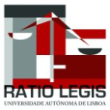Ratio Legis has two research strands – Justice and Human Rights and Law and Governance – which are inspired, in particular, by the celebration of the 70th anniversary of the Universal Declaration of Human Rights (1948) and the implementation of the United Nations 2030 Agenda for Sustainable Development.
The Justice and Human Rights strand addresses some of the most current and sensitive issues in justice and human rights, materializing in four research projects:
- Human Rights and the Implementation of the International Convention on the Rights of Persons with Disabilities in Portugal – the challenges of realizing the rights to decent work and education, through which we intend to analyse the level of implementation of the International Convention of Persons with Disabilities in Portugal (coordinator: Dr Miguel Santos Neves);
- Crimigration and Human Rights, focusing on migration, particularly on the intersections between immigration and crime and on immigrants as targets of criminalization or as victims of crimes (such as human trafficking, aid to illegal immigration and others), and on the defence of the human rights of migrants (coordinators: Dr Constança Urbano de Sousa and Dr Maria João Guia);
- Human Rights, Culture of Peace and Forced Migration Flows, whose objective is to analyse the feasibility of creating “centres of instruction dedicated to social insertion and professional training based on intercultural mediation”, designed to contribute to reducing the crisis of forced migratory flows through the strengthening of the new bias of education as a pillar of democracy, and the inversion of the paradigm of the welfare state (coordinator: Dr Alex Sander Pires);
- Religious Freedom, Social Tension and Security: this project aims to analyse, from a legal perspective, the problem of religious proselytism, perhaps the manifestation of religious freedom that most often ends up being restricted, both in Western countries and in Asian and Middle East contexts, with special focus on proselytizing activities in specific contexts (prisons, hospitals, workplaces, indigenous lands, etc.) (coordinator: Dr Davide Argiolas);
- The Elderly as a Legal Problem: this project aims to legally examine the condition of the elderly, highlighting, in particular, the rights of people in this age group, as well as the duty of the State and society to protect their condition and take into account specific needs. It is a project especially aimed at creating practical solutions, more than ever necessary given the demographic projections for Portugal in the coming decades (coordinator: Dr Diogo Leite de Campos).
The Justice and Human Rights strand addresses some of the most current and sensitive issues in justice and human rights, materializing in four research projects:
- Environmental Law and Regulation, which aims to monitor the implementation of the SDOs related to environmental protection and combating climate change (SDOs Nos. 13, 14 and 15) in Europe, by analysing and disseminating the legislative measures adopted or the programmes and actions being implemented in this area (coordinator: Dr Amparo Sereno);
- Governance and the Anti-Corruption Principle, which seeks to study the main problems of governance (public and private), especially those resulting from its permeability to various forms of corruption, and also to develop the anti-corruption principle as a constitutionally structuring principle (coordinator: Dr Paulo Nogueira da Costa);
- Market and Regulation, which intends to analyse the problem of economic regulation in the various existing markets, highlighting the need to strike a fair balance between regulatory needs, economic operators’ claims and consumer protection. In this context, it will be essential to redefine the role of regulators as guarantors of the opposing interests and their responsibility in this process (coordinator: Dr Ruben Bahamonde).

